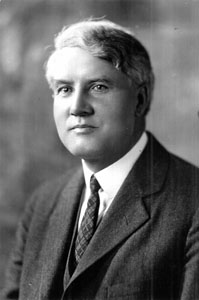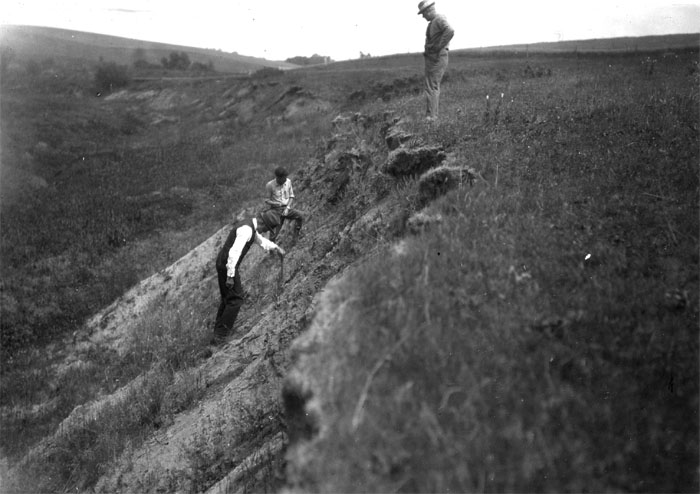
George Frederick Kay
1873-1943

On September 14, 1873, George Frederick Kay was born in Virginia, Ontario, Canada to Joseph Sidney and Elizabeth Marshall Rae Kay. He was the fifth of seven children descending from English and Scotch-Irish pioneers. For his primary education Kay graduated from Owen Sound Collegiate Institute in 1886 and began studying at the University of Toronto. During this time he also served as a public school principal in Zephyr, Ontario. He graduated from the University of Toronto in 1900 with a BA and in 1902 with a MA, both in geology. In 1902, Kay married Bethea Hopper, they later had three children.
While studying at the University of Toronto, Kay worked as a geologist for the Canadian government completing exploration work. In 1904, he became an assistant professor of geology at the University of Kansas where he stayed until 1907. Kay became a professor of geology at the University of Iowa in 1907. During this time he worked on completing his PhD at the University of Chicago and finished in 1914. Additionally, Kay worked for the United States Geological Survey and became head of the geology department in 1911. In 1911, he also assumed the position as the state geologist of Iowa, a post which he held until 1934. He was also the director of the Iowa Geological Survey from 1911-1934.
Kay's research largely focused on the glacial history of Iowa
and the Pleistocene Epoch. However
before 1910 he was involved with
mapping ore deposits in Oregon and mapped the now famous Franciscan Complex .
Additionally he proposed the term "gumbotil" to describe dark clays found in
Iowa. Kay was professionally a member of the Iowa Academy of Sciences,
served as president from 1928-1929, an
officer of the Geological Society of America, and an officer of the American
Association for the Advancement of Science

George F. Kay, Frank Leverett, and Paul
MacClintock, 4 miles NE of Ricketts, IA, at the Nebraskan gumbotil outcrop.
Calvin Photographic Collection